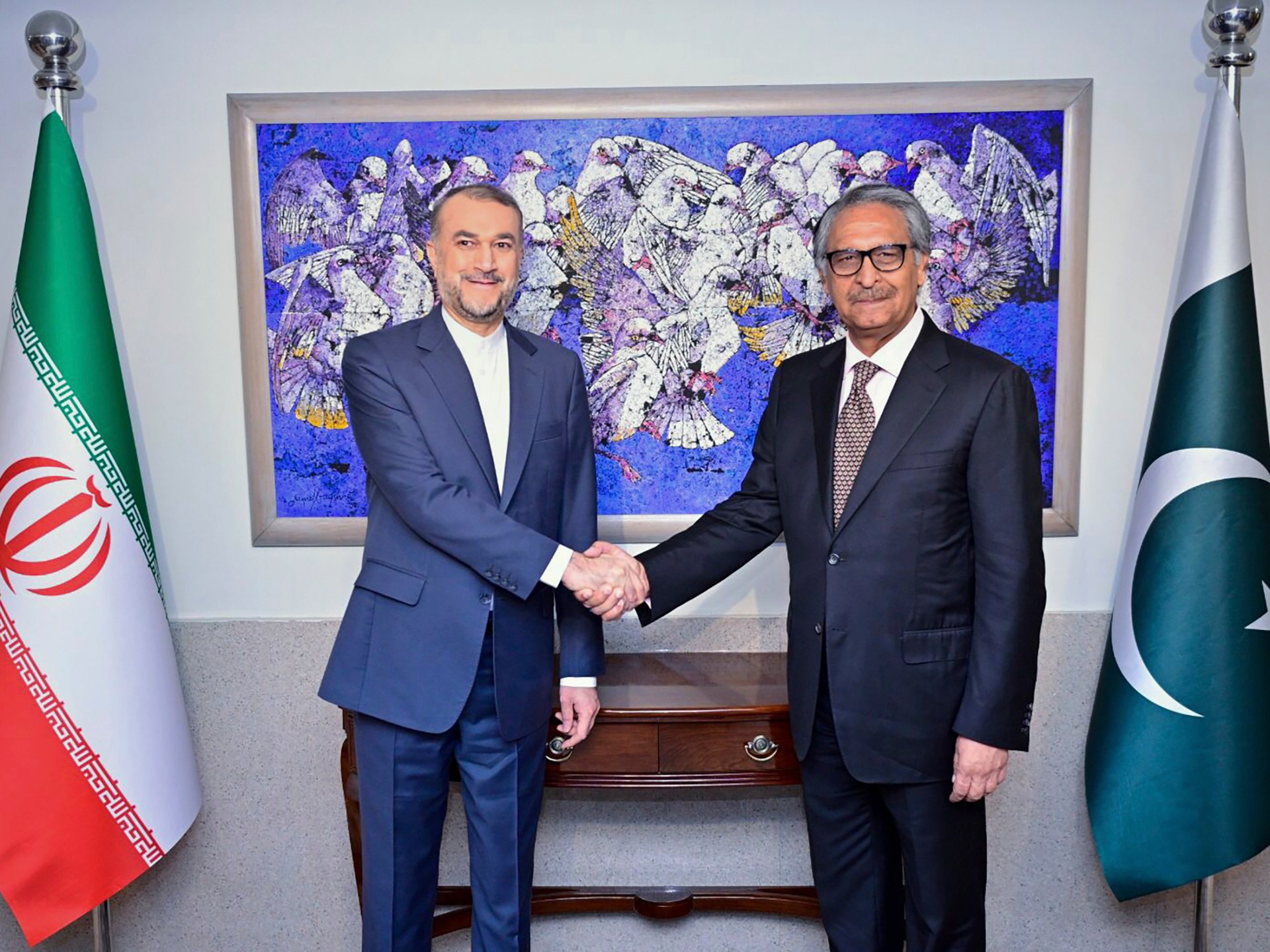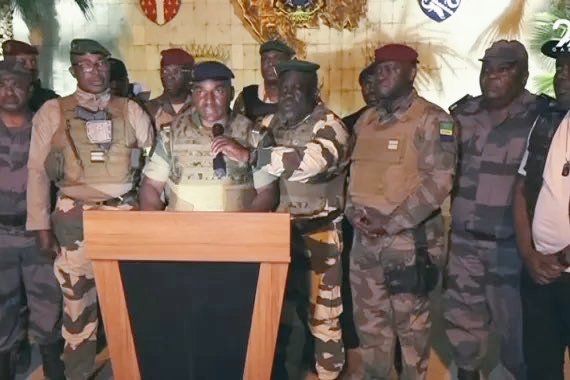Iranian FM in Pakistan to mend ties following mutual air strikes | Politics News
Tehran and Islamabad have moved to de-escalate amid high concern that the Gaza war could spill out across region.
Iran’s foreign minister arrived in Pakistan as the two countries seek to calm tensions, which have risen amid the conflict in Gaza.
Hossein Amirabdollahian landed in Islamabad before dawn on Monday for “in-depth talks” with Pakistani counterpart, Jalil Abbas Jilani, Pakistan’s Ministry of Foreign Affairs said. Tehran and Islamabad are seeking to calm relations after carrying out tit-for-tat air strikes on each other’s territories earlier this month.
The attacks, which each country claimed targeted terrorists in border regions and killed at least 11 people, came as Israel’s bombardment of Gaza escalated tension across the region. However, the elevated threat of a full-blown conflict appeared to send Islamabad and Tehran scrambling to pull back and rebuild diplomatic relations.
The two ministers insisted following their meeting that close relations between Pakistan and Iran are an important source of stability for the region, and resolved to expand political and security cooperation. Both spoke of respect for one another’s sovereignty and territorial integrity.
The pair agreed to confront the “menace of terrorism” together, especially in the mountainous region on their shared border, which was the location of both air strikes. They also pledged to lift the regions economically.
Iran’s Amirabdollahian added that “terrorists” in the border areas are supported by third countries. He did not offer any details on the claim. Western countries accuse Tehran of supporting several groups that they designate as terrorist.
Iran’s foreign minister is also set to meet Pakistan’s caretaker Prime Minister Anwaar-ul-Haq Kakar during his visit. Amirabdollahian said that Iran’s President Ebrahim Raisi will visit Pakistan soon, adding that a date was yet be determined.
Tit-for-tat
Iran and Pakistan have long been wary of armed groups in their borderlands, and it is thought that internal political pressures, as well as the spillover of Israel’s war with Hamas in Gaza, helped push them over the edge.
Tension reached a nadir on January 17, when Iran struck a target in Pakistan’s southwestern Balochistan province. Tehran said it was a hideout for anti-Iran armed group Jaish al-Adl (the Army of Justice).
Pakistan said two children were killed and three others were injured.
Islamabad, in retaliation, recalled its ambassador from Tehran. Two days later it launched an air strike against what it alleges were hideouts of armed groups in Iran’s Sistan-Baluchestan province.
Pakistan said it targeted Baloch groups with separatist aims, in an attack that killed at least nine people.
The attacks sent concern spiking regarding a regional escalation of the Gaza war. Iran and Pakistan, however, quickly made a joint decision to de-escalate tensions and resume diplomatic links, with their respective ambassadors returning to their posts and Amirabdollahian’s visit arranged.
During his trip, the Iranian official will also discuss Saturday’s killing of nine Pakistani labourers by gunmen in Iran’s Sistan-Baluchestan province, which Islamabad called “horrifying and despicable”.
The families of the victims rallied on Sunday to demand their bodies be brought home. Pakistan has said that arrangements are being made with Iran’s help.
Check out our Latest News and Follow us at Facebook
Original Source







